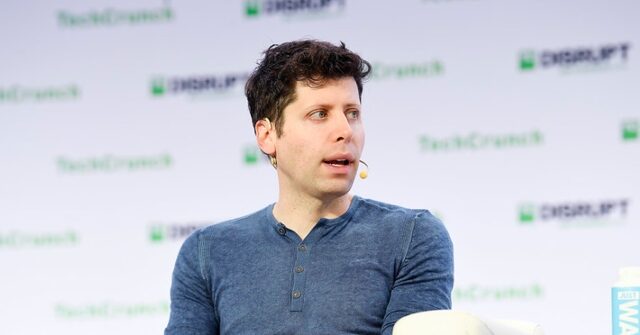Geoffrey Hinton, recognized as the “Godfather of AI” for his seminal contributions to artificial intelligence, garnered significant attention this week after accepting a Nobel Prize. During his acceptance speech, Hinton notably praised one of his former students, Ilya Sutskever, for making headlines by delivering the unexpected decision to fire Sam Altman, the CEO of OpenAI. Despite Altman’s reinstatement only a few days later, Hinton’s remarks highlighted a moment of upheaval within the prominent AI organization, indicating ongoing tensions in the leadership surrounding the direction of AI technology.
Hinton’s acknowledgment of Sutskever reflected his appreciation for the capabilities and boldness of his students, a group he lauded as “much cleverer” than himself. He expressed pride in how they have progressed to accomplish significant innovations and advancements in the AI field. The reference to Sutskever’s controversial action against Altman was perceived by Hinton as a stance in favor of AI safety—a topic to which he has frequently drawn attention throughout his career. This moment of recognition also underscores the dynamics of AI leadership, especially as the spotlight grows warmer on the responsibilities tied to developing such transformative technologies.
In November 2023, tensions within OpenAI’s senior management unfolded dramatically, culminating in a board decision to oust Altman, communicated to him by Sutskever during a video call. However, the brief period of uncertainty quickly turned around as Altman was reinstated just five days later. The rapid resolution of the initial conflict raised questions and concerns about the governance of OpenAI, as some members of the AI community voiced apprehension about Altman’s approach to leadership and its compatibility with the ethical standards expected in AI development.
Following the turmoil, Ilya Sutskever chose to depart from OpenAI, marking a profound exit for one of the organization’s key figures. The New York Times highlighted Sutskever’s role in the initial vote to remove Altman, describing it as a surprising move within a company at the forefront of AI innovation. OpenAI recognized Sutskever’s contributions as being crucial to their achievements. His exit, alongside Altman’s reinstatement, symbolizes both a fracturing and a consolidation of leadership at OpenAI, emphasizing the challenges inherent in navigating the rapidly evolving landscape of artificial intelligence.
Sutskever’s connection to the AI research community is notable; having been part of pivotal breakthroughs during his academic tenure at the University of Toronto, his journey took a significant turn when he co-founded OpenAI in 2015. Under Altman’s leadership, the organization achieved major milestones, developing groundbreaking tools like ChatGPT, which captured public interest and demonstrated AI’s potential. However, the fallout from the recent leadership shake-up hints at deeper ideological rifts regarding the governance of AI technologies and the future direction the organization should take.
In a fragmented yet high-stakes environment, Hinton’s remarks at the Nobel Prize ceremony serve as a reinforcement of the ongoing dialogue surrounding responsible AI practices. As major players in the field grapple with leadership disputes and philosophical divergences over AI’s trajectory, Hinton’s recognition of Sutskever and the events surrounding Altman’s firing encapsulate a moment of reflection for the entire AI sector. This incident not only mirrors the challenges of high-stakes decision-making in advanced technology but also draws attention to the vital discussions about ethics and safety that continue to shape the future of artificial intelligence.

